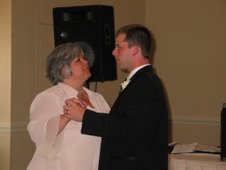Yeats laments the passage of time in The Wild Swans at Coole. He sets the stage by saying "The tress are in their autumn beauty / The woodland paths are dry" (1-2). We expect from these opening lines that he is going to tell us of something that occurs outdoors...in nature. Explaining that he is witnessing a scene which is familiar to him he adds "The nineteenth autumn has come upon me / Since I first made my count" (7-8).
Yeats reveals the emotion he feels by saying "I have looked upon those brillant creatures, / And now my heart is sore. / all's changed since I, hearing at twilight, / The first time on this shore" (13-16). Yeats never tells us how old the narrator is, simply that he has witnessed the swans on the water for 19 years. Actually, I realize in re-reading that Yeats doesn't say that he sees them each year...I made that assumption. The speaker seems to take heart in the consistency of the swans and their appearance each autumn.
Describing the swans as "Unwearied still, lover by lover / They paddle in the cold" (18-19) Yeats may be envious of the swans as they pair up to mate. The background material provided on Yeats explains his unrequited love for Maud Gonne to whom Yeats repeatedly proposed, yet he was repeatedly refused.
In contrast to his earlier mentioned melancholy about the passage of time he says "Their hearts have not grown old" (22). He admires the beauty and the grace of the birds but feeling the heavyness in his heart once more, he wonders where the swans will go " . . . when I awake some day / To find they have flown away" (30).
The Wild Swans at Coole certainly took place in nature, but the emphasis is not placed on nature itself...rather the feelings that are invoked by observing nature. In particular, I think it speaks to the smallness that one can experience when surrounded by nature. As Yeats is reminded that 19 years have passed since he 1st counted the swans, much has changed....still much remains the same.
Saturday, June 16, 2007
Subscribe to:
Post Comments (Atom)

3 comments:
Wanda.
Very good explication of Yeats's poem. I like the way you focus on this particular poem, and dig into it in your analysis. I must confess I have difficulty feeling I understand or appreciate Yeats (more than any other author in this course). Thanks for helping to elucidate this poem.
Wanda was dead-on in her analysis of The Wild Swans at Coole. Yeats was talking about the changes in life as time passes and the sometimes painful memories that go along with them. Everything in his life had changed in the 19 years since he first came to the water, but the swans remained beautiful and inspiring. The swans had not grown weary and "their hearts have not grown old." The swans still had their passion for life, but the speaker had learned the anguish that comes with passage of time and the heartache that life can bring.
I appreciate the way you cited the lines of the poem and then explained them. Your take on the narrator's age was also interesting. I really enjoyed reading this blog as well as others that you have posted.
Post a Comment